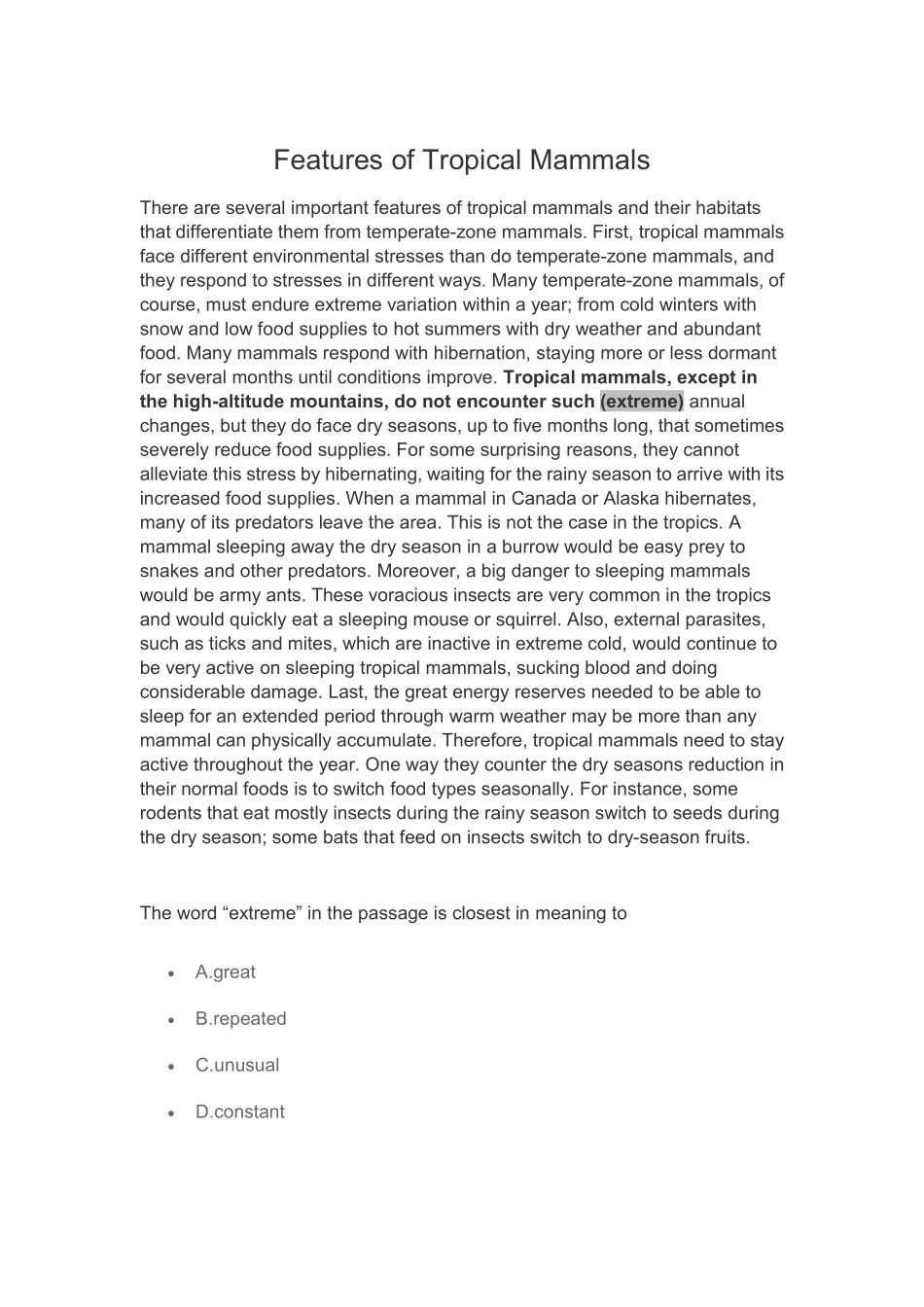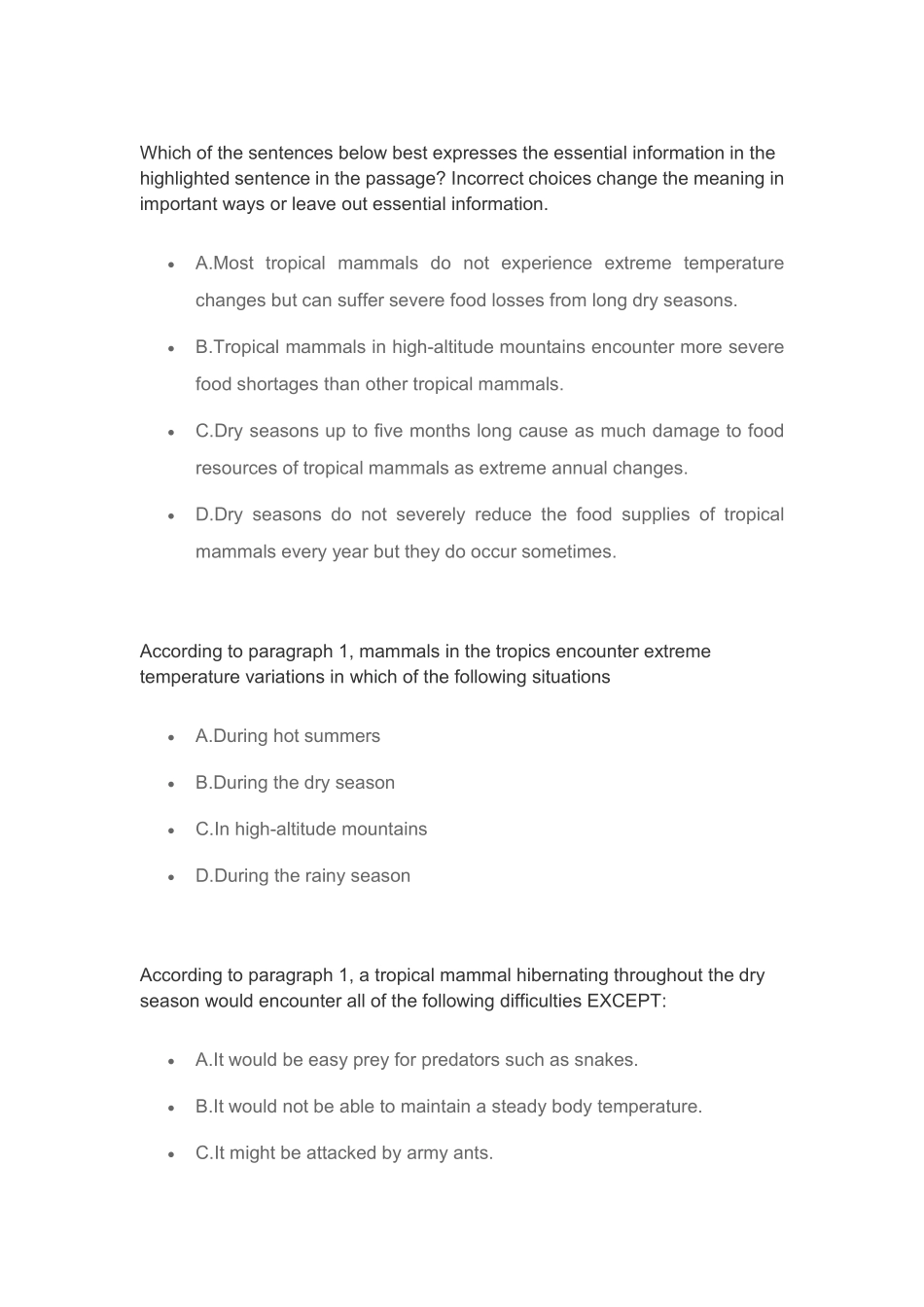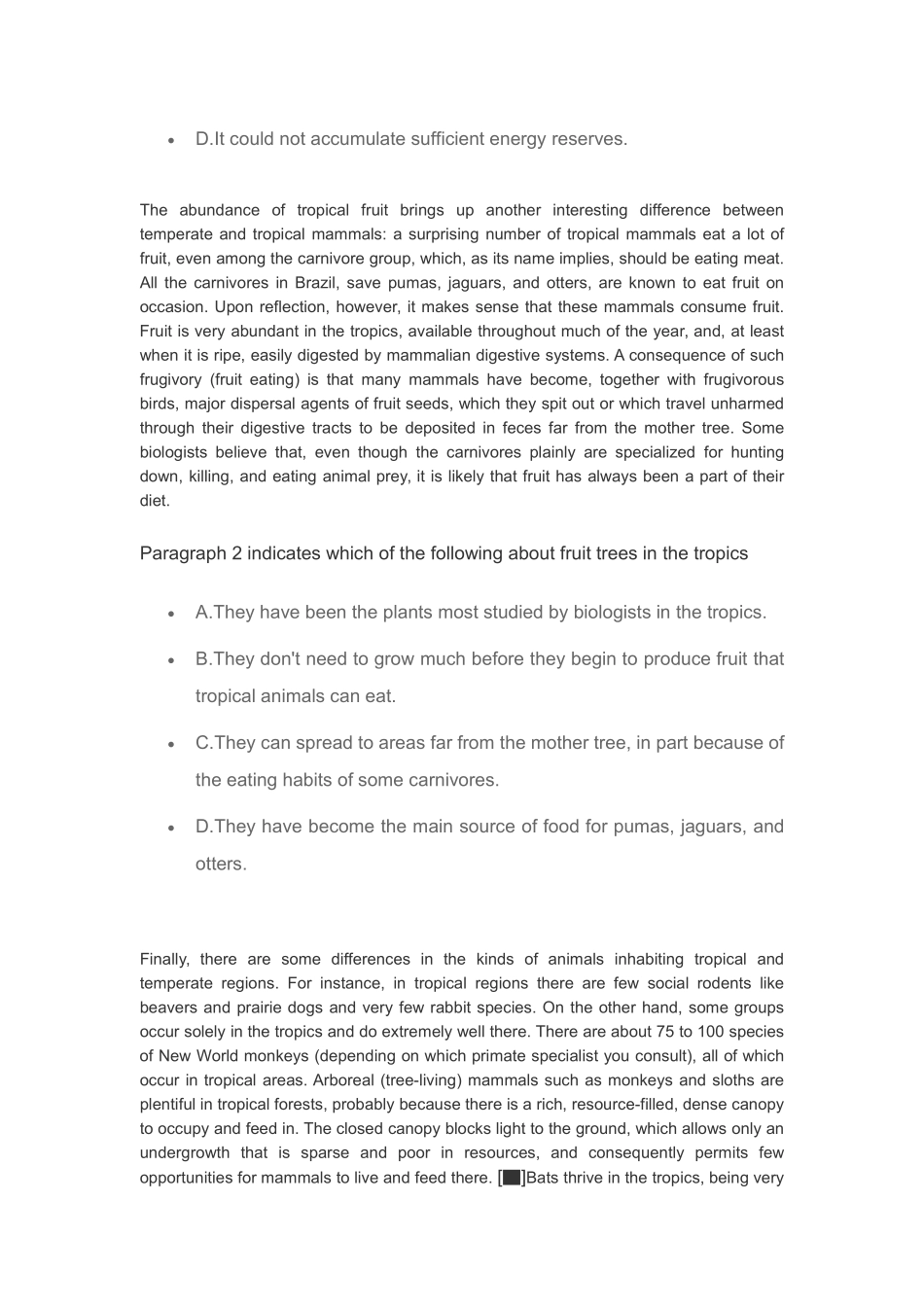Features of Tropical MammalsThere are several important features of tropical mammals and their habitatsthat differentiate them from temperate-zone mammals. First, tropical mammalsface different environmental stresses than do temperate-zone mammals, andthey respond to stresses in different ways. Many temperate-zone mammals, ofcourse, must endure extreme variation within a year; from cold winters withsnow and low food supplies to hot summers with dry weather and abundantfood. Many mammals respond with hibernation, staying more or less dormantfor several months until conditions improve. Tropical mammals, except inthe high-altitude mountains, do not encounter such (extreme) annualchanges, but they do face dry seasons, up to five months long, that sometimesseverely reduce food supplies. For some surprising reasons, they cannotalleviate this stress by hibernating, waiting for the rainy season to arrive with itsincreased food supplies. When a mammal in Canada or Alaska hibernates,many of its predators leave the area. This is not the case in the tropics. Amammal sleeping away the dry season in a burrow would be easy prey tosnakes and other predators. Moreover, a big danger to sleeping mammalswould be army ants. These voracious insects are very common in the tropicsand would quickly eat a sleeping mouse or squirrel. Also, external parasites,such as ticks and mites, which are inactive in extreme cold, would continue tobe very active on sleeping tropical mammals, sucking blood and doingconsiderable damage. Last, the great energy reserves needed to be able tosleep for an extended period through warm weather may be more than anymammal can physically accumulate. Therefore, tropical mammals need to stayactive throughout the year. One way they counter the dry seasons reduction intheir normal foods is to switch food types seasonally. For instance, somerodents that eat mostly insects during the rainy season switch to seeds duringthe dry season; some bats that feed on insects switch to dry-season fruits.The word “extreme” in the passage is closest in meaning toA.greatB.repeatedC.unusualD.constantWhich of the sentences below best expresses the essential information in thehighlighted sentence in the passage? Incorrect choices change the meaning inimportant ways or leave out essential information.A.Most tropical mammals do not experience extreme temperaturechanges but can suffer severe food losses from long dry seasons.B.Tropical mammals in high-altitude mountains encounter more severefood shortages than other tropical mammals.C.Dry seasons up to five months long cause as much damage to foodresources of tropical mammals as extreme annual changes.D.Dry seasons do not severely reduce the food supplies of tropicalmammals every year but they do occur sometimes.According to paragraph 1, mammals in the tropics encounter extremetemperature variations in which of the followin...


